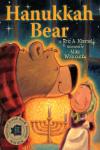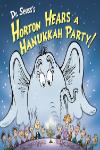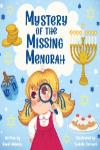In Praise of The Book That Chose to Speak to Me

A biased and committed review of Márk Mezei’s Zsidó Temetés (A Jewish Funeral), Kalligram, 2021
I don’t think I am quite the right person to be writing about the book. I was totally consumed by it. I was possessed and have been holding onto it ever since, never letting it out of sight for too long. It was written for me (für mich) and the likes of me. I knew it, felt it and sensed every word, in my pores, under my skin, in all my muscles and nerve cells. It was sensuous and painful. It was as if I had been present at its birth, was part of it.
I was conscious of the skeleton of the book. The boy’s father was a ‘guest worker’ (a slave worker would be more appropriate) in Soviet Russia in the late 1980s, contracting an illness that would demand his life and like that of so many others. He, the father, in his rightful obsession to document everything, and his son picking up on this, collect the data-evidence of what killed a number of those guest workers off, names of who, how many and how.
The other heart-breaking thread was the boy’s daily visits to the hospital where his father was dying. An objective, non-sentimental account of what is going on is given. Throughout their lives, there was a lack of communication between the two of them and a silence dominating their relationship where everything is covered with the cloth of secrets.
Finally, the third motive is his uncle’s, his father’s brother’s, need to give his brother a Jewish burial in spite of the father never having been an observant or even slightly religious Jew.
Like in many Jewish families, there are clashes about the choice of being religious or staying secular (not to speak of assimilating). Often, there is an unbridgeable split, a rift, a deep abyss dividing the two. What worsens the situation in Eastern Europe is that it was the part of the world most seriously hit by the Holocaust, exterminating, wiping out a whole generation on a semi-continent. Then, communism brought total intolerance of religion, the on-living hatred of ‘once-Christians’ towards ‘once-Jews’, the persecution often leading to atrocities and, in general, the silencing of the next two generations. The lack of information and the inability to experience a sense of belonging made them into the missing generations. (The reader writing these lines belongs to the missing generation and regretted this with misery.) The boy and his father also belong to the missing generations albeit in different ways.
The boy is ignorant, not told of anything – it is only epigenetics that carries history to his veins and subconscious.
We, readers, of course, know it all by osmosis, we do not need to be told – we can see. But we are outsiders who outlive the historic moment. We are taken back to the last years of the rule of communist doctrine and regime, one of the last years, 1987, before its fall in 1989. The boy lives in poverty, is not aware of what he is missing, lives in a country devoid of dreams, in an economy of shortage, in silenced relationships amidst futile, unfulfilled desires and unreturned emotions – and since this is the only reality he knows, it is what he can take for granted.
He is resigned like an old man and makes good use of the only liberties he possesses – he can say no, he can decide about his own fate to a limit, he can have sex and live up to his unalienable right to do so.
Everything is crooked and turns sour. However, no spoilers here.
The story takes place in a single day basically, just before the boy turns eighteen – before his eighteen’s birthday, before his coming of age. I was strongly reminded of the cosmic forces at play in Romeo and Juliet, where tragedy sets in, in five days. The scene is lit by a lightning, the sun and the moon are live characters there. The playfulness of youth is omnipresent.
Here?! Fire consumes all. All is dark and grey, no breeze or fresh air – all is confined to the sickly humid, hot, smoggy and polluted summer air of the industry and the hospital. No one ever feels at ease, no one is comfortable wherever the (puppet) characters may be. No one smiles and no one moves, except for the boy. No one talks. Everything reeks of poverty, negligence, helplessness and indifference. They have given up on all.
Amidst the air of general depression, exploited and abused in many ways, the boy behaves in a heroic and independent way. We admire him – in silence, unnoticed.
The boy – he does have a name, therefore is given a degree of identity – has nothing else much. He has no grandparents, no siblings, no cousins, no friends, no sense of belonging anywhere or to anyone, he has no warmth and little apart from the shirt on his back. We know little of his past, his history. He was raised in silence and in darkness like Caspar Hauser (not even like Mowgli, who was surrounded by a community and had a wolf mother to raise him). We know nothing of his schooling – it couldn’t have made much of an impression, we gather. He is outside of community, he is vulnerable and unprotected.
Strange as it may be, but this is where we get involved. We readers, we watch him, we listen to him and accompany him. We are entangled in his life, we are his fans and we cheer for him. We are his accomplices and, finally, we get to feel that we are invisibly responsible for him. We would like to send a message out to him through the ether, ‘Don’t despair, don’t give up.’ The book cajoles us into taking sides.
One thing he has is integrity. Surprise, surprise. Where does he get it from, what shapes his identity, if it only comes from within? He has will, determination, persistence, a firm set of values and commitment to his cause. He keeps struggling to make sense of the world – it is not his fault he fails at doing so. He achieves other goals.
The boy leads the way, where he goes, we follow. Our solidarity is evoked. We look up on him with awe, we respect him and even a withheld love for him starts blossoming in us. We grow attached to him.
We can escape, whereas he cannot. He is held prisoner, held as hostage. We are making an effort to put the all-consuming fire (the original Greek meaning of the word ‘holocaust’) behind us, delete it from our memory, even if we are unable to, as too many images of buildings and people going up in flames echo in our minds.
His escapades (or rather just the thought, plus the lack thereof) to older women and other sexual ‘pleasures’ are reminiscent of Stephen Vizinczey’s ‘In Praise of Older Women’, who wrote his book upon leaving Hungary as a young man, after the 1956 revolution. That book has charm, follows in the footsteps of ancient Roman writers. In ‘A Jewish Funeral’, the author has women serving the same double purpose of assisting the protagonist in his rite of passage, and supplying more of that domineering greyness of the surroundings that all of us over forty distinctly remember and cannot remove from our system. We get no erotic education. We are left depleted, drained, as if we were still there.
I was touched by how far-reaching the story-line was but, for the moment, all I could do was focus on the outlying, peripheral events. There was plenty of that. I was irresistibly drawn to them like a moth to the light, was flying around, getting closer. I was aware that it would take another reading to bring me closer to the book’s epicentre. Not yet, it would be coming some time later. I knew I wasn’t done reading.
The book can be read layer by layer unfolding – first, just drinking in the thrill of the storyline, second, the awe of watching the boy’s personality evolve, third, by becoming associated with the beginning and the end, that was rather neglected at first, and lastly, integrating all the layers into the intricate foldings where all is interconnected and extended to beyond, to what was before and what is coming after. You will find your way.
I am slow. It took me two weeks for the plot to settle in and for me to accept and stop rebelling against it. Four weeks after first having read it, first having crossed its ravaged wasteland, I got to absorb the full horror and I still do not know if future readers can prepare for what is coming.
Whether we like it or not, whether we have been there or not, we are treading on the familiar grounds of the past. We recognise our place in the world, whoever we are, wherever we come from, for we are ’Everyman’ like the boy-protagonist in it, the hero of the medieval morality play. What it speaks about is universal, even if the background is in Eastern Europe. We are stuck in Hieronymus Bosch’s Garden of Earthly Delights and Dante’s Inferno.
Four weeks have passed and the ripples do not stop reaching me. I am at the bottom of a waking volcano – a living, breathing, thriving and pulsating masterpeice. The matter inside the volcano is still simmering, brewing, fermenting and it is far from being distilled (in me, the reader).
The writing is stripped of spectacular effects and extremes, it insists on everyday language, simple words, clear thoughts, sharp and precise observations and builds on strong visual and sensual representation. The path the boy covers is written in first person singular starting from an almost idyllic, yet false, peace of a small, rural, industrial town unfolding into expected or unexpected horror depending on the reader’s disposition. The only extravagance, the disciplined author allows for is a taste of welcome pornography to break the drab monotony and nudge life ahead. In doing so, he reaches back to the traditions of writers like John Updike or Philip Roth.
Rarely do you find yourself living together with a book. If you are reading this, probably ’A Jewish Funeral’ will change your expectations towards books, like it did mine. You will look for its inspirational power, you will be inseparable from it, it will become indispensable in your daily life and thinking.
I would like to thank the author, Márk Mezei, who listened to the rumblings of the volcano, watched, descended to the bottommost level of Inferno and noted the growth of life there, chronicled the sizzling, scorching fire and the wounds of the boy and of those others inside. He took us into Jonah’s whale, present here and now.
By Little Stone (pen-name in memory of my maternal grandparents gassed in Auschwitz)
Year first published: 2021
The book's page at the publisher's site














